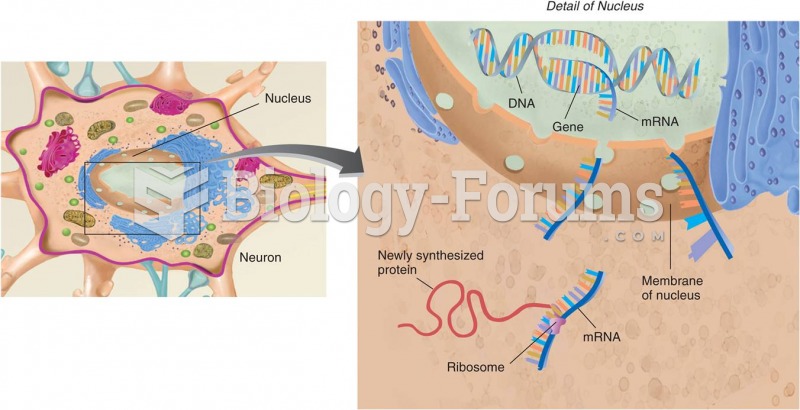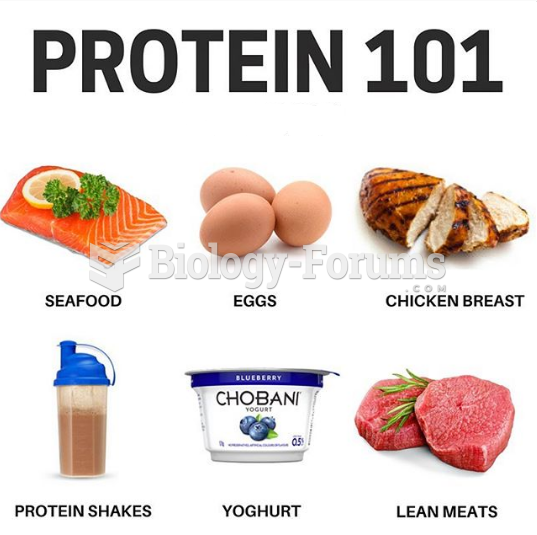Answer to Question 1
The protein RDA for vegetarians is the same as for others, although some have suggested that it should be higher because plant proteins are not digested as completely. Lacto-ovo-vegetarian diets that include animal-derived foods such as milk and eggs, deliver high-quality proteins and are likely to meet protein needs. Even vegetarians who adopt only plant-based diets are likely to meet protein needs provided that their energy intakes are adequate and the protein sources varied. The proteins of whole grains, vegetables, legumes, and nuts and seeds can provide adequate amounts of all the amino acids. An advantage of many vegetarian sources of protein is that they are generally lower in saturated fat than meats and are often higher in fiber and richer in some vitamins and minerals.
Vegetarians sometimes use meat replacements made of textured vegetable protein (soy protein). These foods are formulated to look and taste like meat, seafood, or poultry. Many of these products are fortified to provide the vitamins and minerals found in animal sources of protein. Some may be high in salt, sugars, and saturated fats. A wise vegetarian learns to read labels and use a variety of whole, unrefined foods often and commercially prepared foods less frequently. Vegetarians may also use soy products such as tofu to bolster protein intake.
Answer to Question 2
Vegetarians tend to maintain a lower and healthier body weight than nonvegetarians. In general, those who eat meat have higher energy intakes and body weights. Vegetarians' lower body weights correlate with their high intakes of fiber and low intakes of fat.
Obesity and weight gains are strong risk factors for diabetes, which partially explains why nonvegetarian diets are more often associated with diabetes than vegetarian diets. Even when body weight and life-style factors are taken into account, vegetarian eating patterns seem to protect against diabetes.
Vegetarians tend to have lower blood pressure and lower rates of hypertension than nonvegetarians. Appropriate body weight helps to maintain a healthy blood pressure, as does a diet low in saturated fat and cholesterol and high in fiber, fruits, vegetables, whole grains, low-fat milk products, and protein from plant sources.
Meat is associated with an increased risk of heart disease and stroke. The incidence of heart disease and related deaths and the concentrations of blood cholesterol are lower for vegetarians than for nonvegetarians, which can partly be explained by their avoidance of meat.The dietary factor most directly related to heart disease is saturated animal fat, and in general, vegetarian diets are lower in total fat, saturated fat, and cholesterol than typical meat-based diets. The fats common in plant-based dietsthe monounsaturated fats of olives, seeds, and nuts and the polyunsaturated fats of vegetable oilsare associated with a decreased risk of heart disease. Furthermore, vegetarian diets are generally higher in dietary fiber, antioxidant vitamins, and phytochemicalsall factors that help control blood lipids and protect against heart disease. Many vegetarians include soy products such as tofu in their diets. Soy productswith their polyunsaturated fats, fibers, vitamins, and minerals, and little saturated fatmay help to protect against heart disease.
Vegetarians have a lower overall cancer incidence than the general population. Their low cancer rates may be due to their high intakes of fruits and vegetables. Some scientific findings indicate that vegetarian diets are associated not only with lower cancer mortality in general, but also with lower incidence of cancer at specific sites as well, most notably, colon cancer. People with colon cancer seem to eat more meat. Some cancer experts recommend limiting consumption of red meat to no more than 11 ounces a week, with very little (if any) processed meat.
In addition to obesity, diabetes, hypertension, heart disease, and some cancers, vegetarian diets may help prevent osteoporosis, diverticular disease, gallstones, cataracts, and rheumatoid arthritis.







